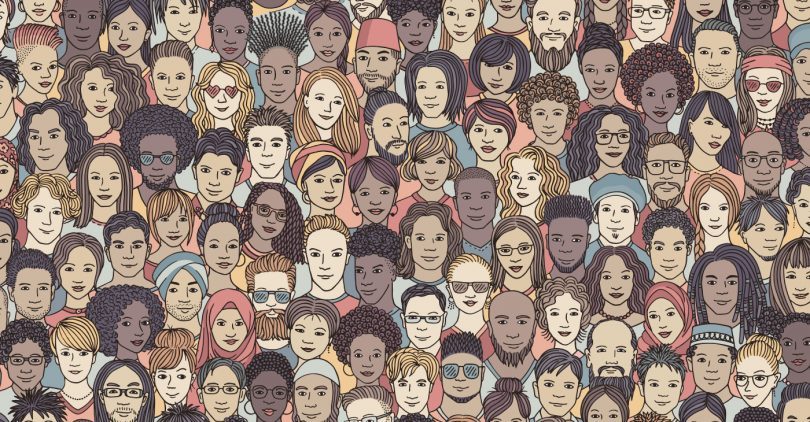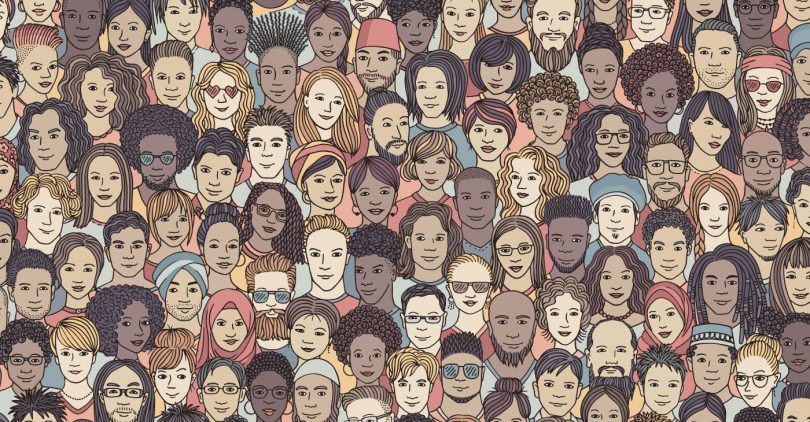[ad_1]
By Stacy M. Brown, NNPA Newswire National Correspondent
@StacyBrownMedia
With immigration reform remaining one of the most prominent political issues, suggesting that the U.S. demographic landscape may soon change, the personal-finance website WalletHub released its report on 2019’s Most & Least Ethnically Diverse Cities.
To identify the most ethnically diverse places in America, WalletHub compared more than 500 of the largest U.S. cities across three key metrics: ethno-racial diversity, linguistic diversity and birthplace diversity.

Oakland, California, has the highest racial and ethnic diversity than any other city in the country, a figure that’s four times higher than in Hialeah, Florida, the city with the lowest.
Meanwhile, Hialeah enjoys the highest concentration of Hispanics or Latinos, at 96.44 percent while Laconia, New Hampshire has the highest concentration of whites, at 94.81 percent.
Jackson, Mississippi has the highest concentration of blacks, at 81.44 percent.
Jersey City, NJ; Gaithersburg, Md.; Germantown, Md.; Silver Spring, Md. and Spring Valley, Nevada were the most ethnically diverse cities in America according to the study.
New York City, Oakland, San Jose, Ca.; Rockville, Md. and Kent, Washington also made the top 10.
Barre, Vermont; Clarksburg, West Virginia; Watertown, South Dakota; Parkersburg, West Virginia; and Hialeah, Florida, comprised the rest of the 10 least ethnically diverse cities.
Rutland, Vermont; Wheeling, West Virginia; Laconia, New Hampshire; Miles City, Montana and Bennington, Vermont, were identified as the five least ethnically diverse cities.
Havre, Montana; had the highest concentration of residents who spoke English (98.57 percent), while Hileah, Florida found itself at the opposite end with just 5.59 percent of its residents speaking English (93.96 percent of Hileah residents speak Spanish and just 0.33 percent of those in Havre speak Spanish).
For birthplace diversity (locations where residents continue to reside long after they were born) Greenville, Mississippi topped every city with 86.79 percent, while Hilton Head Island, S.C., came in last at 16.80 percent.
New York (69.40 percent) is the most diverse large city, Jersey City counts as the most diverse mid-size city and Gaithersburg, Md., is the most diverse small city in America, according to the report.
“A growing body of social psychological research suggests that information about increasing ethnic diversity can lead white Americans to express greater concerns about their ethnic group’s status and, further, these concerns can have implications for interethnic attitudes as well as political attitudes,” said Dr. Maureen Craig, a WalletHub expert and assistant professor in the Department of Psychology at New York University.
“For example, prior research has found that viewing a media report detailing increases in national ethnic diversity can lead white Americans to express ethnic bias, support more exclusionary political stances, and express greater concerns about anti-white discrimination,” Craig said.
“However, an important caveat is that these experiments all focus on what happens when white Americans are asked to anticipate ethnic demographic change,” she said.
There are many benefits to a diverse, multicultural city some of which are being exposed to different neighborhoods, communities, culture, parks and restaurants, said Dr. Kwame Dixon, a WalletHub expert and an assistant professor of African American Studies in the Maxwell School of Citizenship and Public Affairs at Syracuse University.
“In most cases a diverse cultural setting leads to some common boundaries of understanding. The social citizen of the 21st century must be being exposed to multiple cultural settings and environments,” Dixon said.
If diversity becomes a smokescreen for displacement or gentrification or if a historically black or Latino community is diversified in a short period of time by newcomers defined as white then there will be tensions around space, identity and displacement, he said.
“This may lead to other tensions – former residents being pushed to the margins or to poorer communities,” Dixon said.
Click here to view the full report.
[ad_2]
Source link


